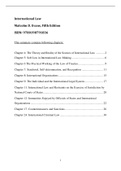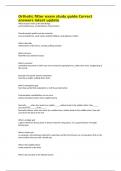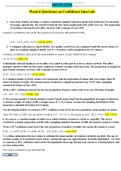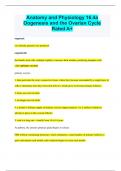Samenvatting
Summary of International Law by Malcolm D. Evans, Fifth Edition
- Instelling
- Rijksuniversiteit Groningen (RuG)
- Boek
- International Law
This summary contains following chapters: Chapter 4: The Theory and Reality of the Sources of International Law Chapter 5: Soft Law in International Law-Making Chapter 6 The Practical Working of the Law of Treaties Chapter 7: Statehood, Self-determination, and Recognition Chapter 8: Inter...
[Meer zien]














